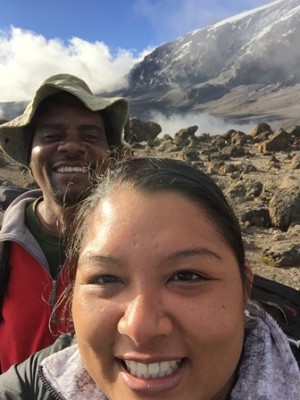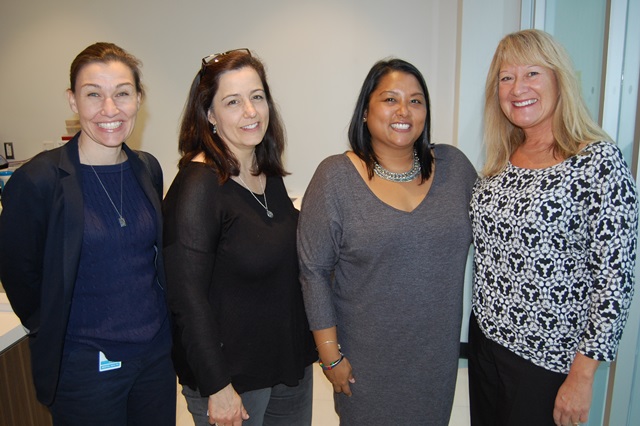Brandi Ng-See-Quan returned from an adventure of a lifetime – attempting to climb one of the highest mountains in the world, #Mount Kilimanjaro – and it was a journey she’ll never forget. And her journey is one everyone at Rouge Valley Health System (RVHS) will never forget as well.
This was no ordinary climb and no ordinary woman. Ng-See-Quan chose this adventure as a way to give back to the mental health programs at RVHS’s Centenary hospital campus and help combat the stigma surrounding those with mental health issues.
As someone who struggled with #depression, she wanted to show herself and others that you can still live a fulfilling life, despite any obstacle.
“The outpatient mental health program really helped me get my life back on track!” she says. “Without them, I don’t think I would have bounced back too quickly. With their help, I was able to regain confidence in areas of my life where it was lacking. I want the funds raised to help this department help others as they helped me when I was struggling.”
The journey took place last fall, but it didn’t end when she returned. Ng-See-Quan is already considering repeating the feat, and taking more of her friends and hospital supporters with her next time.

Although she fell short of the peak, she was happy to have made the attempt. She says all of her supporters have expressed their admiration for her effort. On November 16, 2015 she brought a cheque for more than $6,000 to the RVHS Foundation and received a warm greeting from her friends in the mental health program who were excited to see her again and hear first-hand what the climb was like.
In dreaming up and executing this unique way to raise funds for Rouge Valley Health System, Ng-See-Quan worked with Maureen Dowhaniuk, associate director, events, at the Rouge Valley Health System Foundation. Although she has worked with countless third-party fundraisers and community group events, this was still a special opportunity, Dowhaniuk says.
“We were so excited when she told us what she was planning,” she says. “I think the world of Brandi, she is such an amazing young woman. Not only for giving back to the program in this way, but also for being brave enough to give voice to those with mental health issues and show what is possible.”
Julie Kish, interim director, mental health and addictions at Rouge Valley Health System, calls Ng-See-Quan “an inspiration to everyone who is struggling with mental health issues,” including everyone in the community and the clients being seen at the program.
“It’s difficult for people to seek help when they are feeling at their worst, but I’m hoping Brandi’s story will inspire them to see what they can look forward to if they accept help from our clinicians,” says Kish. “Our mental health team is proud of Brandi and is thrilled she is brave enough to share her personal story so others can benefit from her experience.”
On why she chose Kilimanjaro, Ng-See-Quan says it goes back to her youth. “As a young child, I would constantly watch any sort of nature/education or documentary regarding Africa in general,” she explains. “I’ve always been fascinated and was determined from a young age that I would visit this amazing continent. With my newfound confidence, I thought this would be a great test for everything I’ve learned while in the outpatient program.”
The climb was arduous at times, with difficult terrain and problems due to the altitude. But she was well cared for by her guide aptly named ‘Good Luck’, she says.
“When I began to get a little loopy from the lack of oxygen, I’d sin, “Have no fear, Good Luck is here,” she says. “I’m glad I did it. I would do it again.”
The trip to get close to the top took three days, but when they had to turn back for her health, they had to do it in one day. It was a scary journey at times and emotional, she admits.
“Of course I cried. They consoled me… but I was nauseous and liquids only made it worse… my body was shutting down,” she explains. “They saw me coughing throughout the night. So they knew what condition I was in.”
The 12-hour descent was dark to start at 7 a.m. and at the end when they arrived at the camp. She is grateful for the care they gave her and to console her, her guides pointed to the registration book where there were many names of people who had to turn back for similar reasons. She also took solace in knowing her newfound friends were able to complete what they’d started.
“I was happy for the rest of my group, but I really wished I was up there with them,” she adds.
Back in Canada, she reflects on the amazing journey she made and says “I’m excited to see what’s next for me!”




